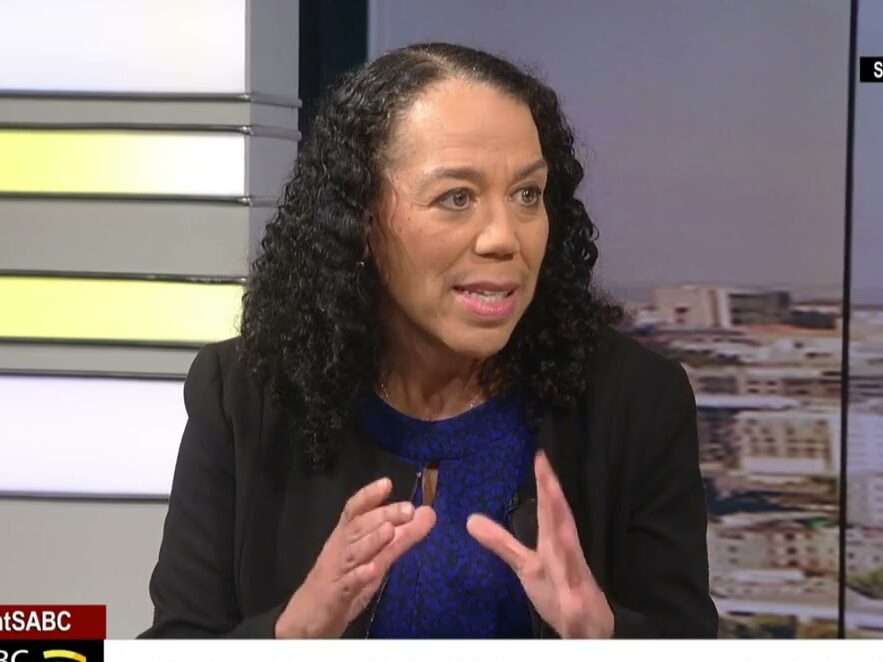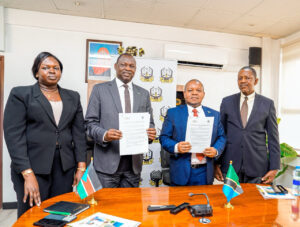- Tanzania among Africa’s fastest-growing economies as IMF flags regional vulnerabilities
By Exuperius Kachenje
The International Monetary Fund (IMF) has praised Tanzania’s robust macroeconomic performance, positioning the country among Africa’s top performers amid growing concerns over regional economic headwinds.
Speaking to Business Insider Tanzania during the recent launch of the IMF’s Regional Economic Outlook for Sub-Saharan Africa in Dar es Salaam, Catherine Pattillo, Deputy Director of the IMF’s African Department, described Tanzania as “doing quite well”.
“With projected GDP growth of 5.5% in 2024 and 6% in 2025, Tanzania ranks among the 20 fastest-growing economies globally – 11 of which are in Sub-Saharan Africa,” Ms Pattillo noted.
She emphasized key indicators underpinning this performance, including low inflation at 3.3% – well below the Bank of Tanzania’s target – and a narrowing current account deficit.
“Improved foreign exchange market functioning and increased flexibility are drawing more inflows into the official market. That’s very positive for business, investment, and exports,” she said.
The Bank of Tanzania (BoT) says that the country’s external sector continued to improve in 2024 supported by global and domestic economic conditions. Consequently, the current account deficit narrowed by 28.6% to US$2,113.5 million from US$ 2,958.3 million in 2023.
“The improvement resulted from increased export earnings and a slowdown
in imports,” notes the central bank in the January 2025 Monthly Economic Review (MER).
“In the year ending April 2025, the external sector continued to improve, with the current account deficit narrowing to US$2,015.6 million from US$2,926.8 million in the corresponding period of 2024,” BoT notes in the May 2025 MER.
While the government temporarily paused fiscal consolidation due to higher spending in health and education, Ms Pattillo urged a return to reform-oriented budgeting. “The next budget must resume a growth-friendly consolidation path, with stronger revenue mobilisation while safeguarding priority sectors,” she advised.
Diverse Strengths Bolster Stability
Ms. Pattillo attributed Tanzania’s economic resilience to its diversification, highlighting strong performance in agriculture, tourism, mining, and financial services.
“Unlike resource-dependent economies growing at half the pace, Tanzania is benefiting from a more balanced and robust economic base,” she said.
Still, she cautioned against complacency. “Pre-election periods carry the risk of reform slowdowns, so vigilance is critical,” she warned, also highlighting regional instability – particularly in eastern DRC – as a potential risk to Tanzania’s stability.
“Tanzania is well-positioned, but even in uncertain times, it must prioritise macroeconomic stability, social investment, and governance reform,” Ms Pattillo concluded. “Improving the business environment and maintaining public trust are essential for sustained progress.”
Echoing her views, IMF Resident Representative for Tanzania, Sebastian Acevedo, emphasized the importance of staying focused on stability and social priorities. “This is the foundation for inclusive growth and job creation,” he said.
Regional Outlook: Recovery Interrupted
Zooming out to the regional picture, Ms Pattillo delivered a sobering message: Sub-Saharan Africa’s recovery is facing renewed strain due to rising global uncertainty.
“We’re seeing signs of recovery, with 2023 growth exceeding expectations at 4%. But that progress is now under threat,” she said. The IMF’s revised forecast projects regional GDP to soften to 3.8% in 2025, before edging up to 4.2% in 2026.
The IMF’s latest report, Recovery Interrupted, attributes this slowdown to weaker global demand, falling commodity prices, and tighter financial conditions. “These challenges are less about direct shocks like tariffs and more about ripple effects—lower growth in key partners, declining oil prices, and higher borrowing costs,” Ms Pattillo explained.
Her message to the region: remain disciplined. “This is a time for consistency, credibility, and caution. Strong monetary and fiscal policies, healthy reserves, and good governance will be key to navigating the uncertainty ahead,” she said.
Ends…









